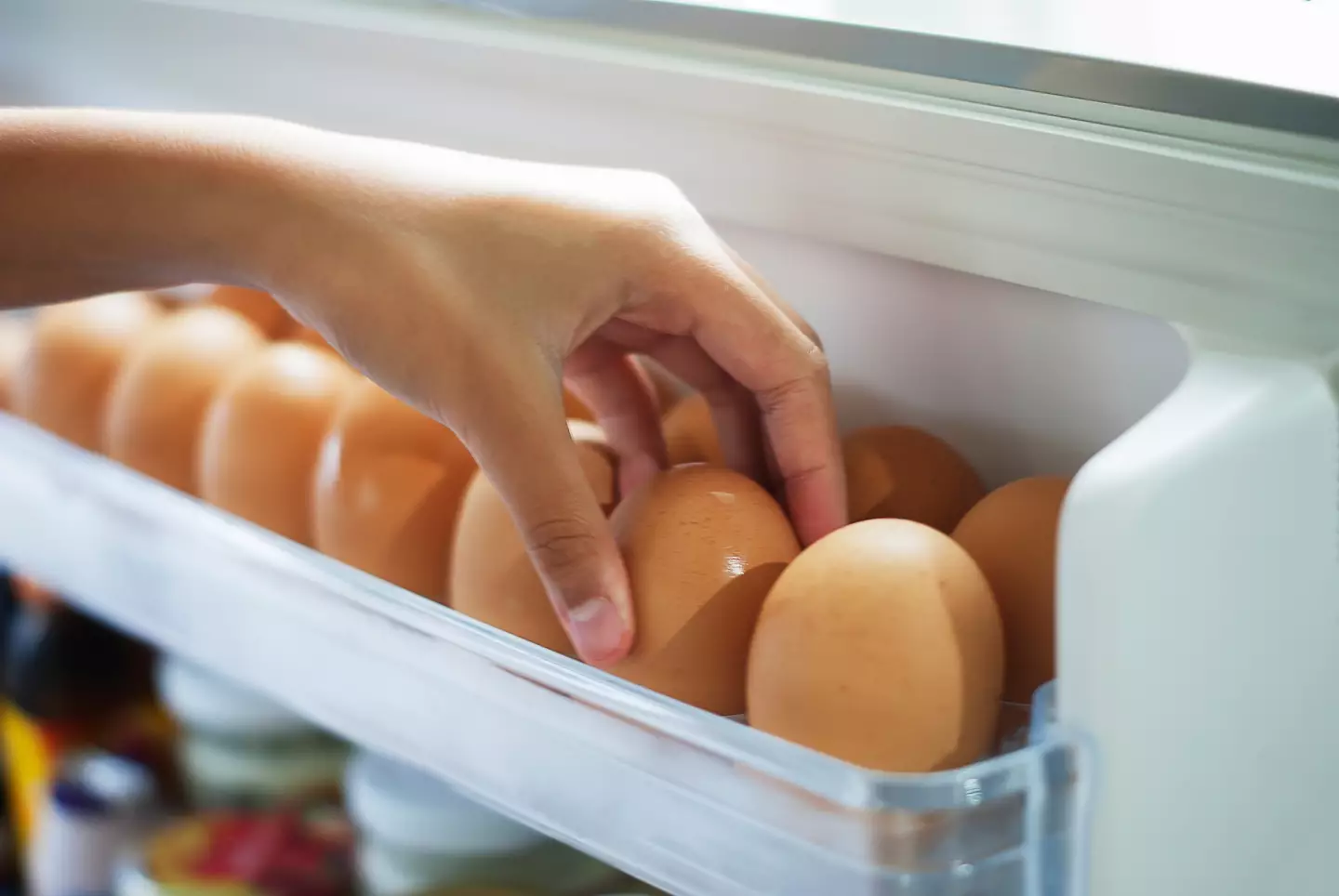
It’s one of those little idiosyncrasies that divide us in mostly-hidden ways: where do you keep your eggs? In the fridge, the cupboard, under the bed?
Along with ketchup, chocolate and apples, egg storage is a contentious subject.
However, Team Cupboard have had a rare win – along with a loss – thanks to one expert who’s weighed in on why cooking eggs straight from the fridge might be a bad idea.
It’s some broadly-applicable advice, too, with The Mirror estimating that the nation goes through 202 eggs per household each year.
Advert

Hens are vaccinated against salmonella in the UK, meaning it’s generally okay to store them in a cupboard or some other shaded spot in your kitchen.
Experts reckon it’s nevertheless best to keep them in the fridge, although there is a caveat.
Apparently, eggs are best cooked when they’ve been out of the fridge for at least half an hour. The reason for this is that eggs have weaker binding properties when they’re cold, so this is especially useful information if you’re into baking.
Advert
When they’re kept in the fridge, the best place for eggs is towards the back of a middle shelf, ensuring temperatures are relatively stable. The door, on the other hand is sub-optimal as the temperature there is less consistent.
"This location in the fridge is best to keep the eggs at a constant temperature and the cardboard boxes provide the perfect level of protection, plus they will have the expiry date on them," said Anna Williams, Head Pastry Chef at Fallow, told The Mirror.
Apparently the shells are porous too, so it’s a good idea to keep them away from strong-smelling foods and raw meat.
"Bacteria can form on the porous eggshells and can easily contaminate the other eggs," Williams added.
Advert
Her take is backed by the Food Standards Agency (FSA), which adds that eggs are best kept in a cool place and in the same box they came in to limit the chance of breakages.

“Store whole eggs in a cool dry place, ideally in the fridge, until you use them,” says the FSA website. “Storing eggs at a constant cool temperature will help to keep them safe."
"Only break the eggs you will need for the day and avoid storing liquid egg for more than 24 hours.
Advert
"Never add new eggs to a batch of liquid egg – use up one batch and then start another."
